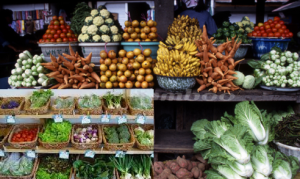
Global demand for food and agriculture products is projected to slow “considerably” over the next decade, mainly due to weakening consumption in China, the UN food agency said Monday.
Over the 10-year period beginning this year, growth in the demand for agricultural products “will slow considerably compared to the previous decade,” the UN’s Food and Agriculture Organization (FAO) predicted in a newly released report.
The joint report by the FAO in Rome and the Paris-based Organisation for Economic Cooperation and Development (OECD) of 34 leading world economies contained major food and agriculture products forecasts to 2026.
One of the main reasons given for the decline was a slowdown in growth in China, where incomes over the outlook period are projected to flatline, driving down spending on foodstuffs.
China has traditionally boosted demand for food and agriculture products in the past, including in the last decade when agricultural markets “experienced a demand increase of historical proportions”, driven in part by China’s high consumption of meat and fish.
But as “income growth moderates and the propensity for households to spend additional income on food declines,” growth rates for foods, including cereals, meat, fish and vegetable oil, “will be cut by around half.”
The FAO added that the use of biofuels — which “was heavily policy-driven” because of concerns over greenhouse gas emissions and thus boosted demand for maize, sugarcane and vegetable oils over the past decade — will experience a similar production slowdown.
“Current policies and expected moderate crude oil prices appear likely to lead to a lower growth in biofuel production from agricultural crops compared to the last decade,” the FAO report said.
This slowdown will allow farmers to use land that was previously earmarked for biofuels to grow food instead.
The report also predicted that consumption growth in developing countries will decrease the number of undernourished individuals from 11 percent to eight percent over the coming decade, bringing the total down from over 788 million to 650 million people.
“Still, food insecurity will remain a critical global concern, and the co-existence of malnutrition in all its forms poses new challenges in many countries,” the report warned.